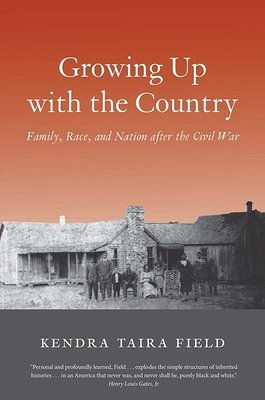The Stories We Tell
The project:
The Stories We Tell traces the history of African American genealogy and family storytelling from the Middle Passage to the present. It is about the painstaking efforts of generations of African Americans to access and share their familial pasts; how these efforts were shaped by the history of slavery, emancipation, segregation, and civil rights struggle; and how these efforts, in turn, shaped American history. It investigates and celebrates where millions of African descent went—aesthetically, creatively, and when others were not listening—to make meaning of their familial past.
From The Stories We Tell:
One day in the summer of 1871, fifteen years prior to Du Bois’s arrival at Fisk University, several students knocked on the sitting room door of school president Adam K. Spence. Like many Fisk students at the time, these young people had been enslaved as children and were part of the first generation of African Americans who came of age after emancipation. The small group of students asked Spence for permission to shut and lock the door, before drawing the curtains and sitting on his wooden floor. Then, Spence recalled, “as if a thing they were ashamed of,” the students opened their mouths and quietly began to sing. The songs they sang would soon become known across the United States and Europe as “Jubilee songs”—and the students as Fisk’s first class of Jubilee Singers. One of the students was twenty-year-old Ella Sheppard. Born enslaved in Mississippi and separated from her mother as a toddler, Sheppard would soon become assistant music instructor at the school.
But Sheppard never intended to sing those songs. “The slave songs,” she stated decades later, “were never used by us then in public.” Sheppard remembered how they “finally grew willing to sing them privately.” They would return to the sitting room time and again in the coming weeks. Sitting on the floor, Sheppard said, the singers “practiced softly, learning from each other the songs of [their] fathers.” Although the spirituals would eventually become the mainstay of their performances—this was the repertoire I heard myself when my cousin Phillipa Kay became a Fisk Jubilee Singer in the 1980s—in the early days of touring, the Jubilee Singers instead performed European standards. “The slave songs were associated with slavery and the dark past,” Sheppard later recalled, and “represented the things to be forgotten.” She added, “Then, too, they were sacred to our parents who used them in their religious worship”—signaling the existence of a private realm of historical memory. In this spirit, historian Darlene Clark Hine has noted the many dimensions of our past that African American women of the post-emancipation era “believed better left unknown, unwritten, and unspoken except in whispered tones.”
In the decades following emancipation, even as freedpeople placed thousands of newspaper ads for family members separated by the slave trade, some “tested their freedom” in ways that shaped family histories and genealogies for generations to come—taking on new names and relations, cultivating particular family stories, while allowing other stories, and relations, to fade.
As early as 1845, Frederick Douglass had written that the songs of his enslaved brethren “told a tale of woe.” The sorrow songs became a conduit, a repository, and a memorial to family and family history lost to the trade. Decades later, Du Bois called the songs “the music of an unhappy people, of the children of disappointment; they tell of death and suffering and unvoiced longing towards a truer world, of misty wanderings and hidden ways.” Fisk graduate John Wesley Work II, whose father had been enslaved, echoed that these songs were the “personal concern” of enslaved women and men. “When the Negro found himself free,” Work wrote, “he literally put his past behind him.” At least publicly.
The grant jury: A crucial rethinking of the meanings of genealogy, with all the makings of a tour de force. This is a major study of the Black past in America and how African Americans have approached their history and its lacunae, via fiction and silence as well as memory and historical record. Kendra Taira Field approaches rarely discussed material with scholarly thoroughness and a fluid, intimate style that is touched with gravitas. The Stories We Tell has the potential to quietly transform the cultural conversation around family history: who makes it, who it belongs to, and what purpose it can serve.
Dr. Kendra Taira Field is Associate Professor of History and Director of the Center for the Study of Race and Democracy at Tufts University. Field is the author of Growing Up with the Country and the co-founder of the African American Trail Project and the Du Bois Forum, a retreat for writers, scholars, and artists. She co-curated the inaugural exhibition of the National Women’s History Museum and serves as Chief Historian for the 10 Million Names Project. She lives in Boston.
Selected Works
